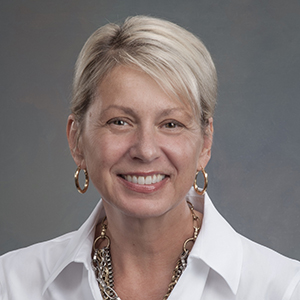Resilience in the Face of Trauma
 Lida Buniak’s great-grandparents endured the Holodomor, a devastating manmade famine that claimed millions of lives as it swept across Ukraine in the early 1930s. The couple survived the devastating humanitarian crisis, but sadly perished in another famine a decade later. Their legacy, however, has endured. Some 80 years after their deaths, they continue to inspire their great-granddaughter’s life and work. Their experiences sparked Buniak’s interest in the burgeoning field of intergenerational trauma, which is centered on the idea that trauma is not experienced solely by one person, but can be passed down from one generation to the next, just as heirlooms, genetic conditions and physical characteristics can be. Her family’s history motived Buniak to ask: How can a person living today be impacted a traumatic event one of his ancestors experienced generations ago? Now she is pursuing research that seeks to answer that question – and what it means to be resilient in the face of incredible hardship – as a student in Le Moyne’s Doctor of Executive Leadership (Ed.D.) Program.
Lida Buniak’s great-grandparents endured the Holodomor, a devastating manmade famine that claimed millions of lives as it swept across Ukraine in the early 1930s. The couple survived the devastating humanitarian crisis, but sadly perished in another famine a decade later. Their legacy, however, has endured. Some 80 years after their deaths, they continue to inspire their great-granddaughter’s life and work. Their experiences sparked Buniak’s interest in the burgeoning field of intergenerational trauma, which is centered on the idea that trauma is not experienced solely by one person, but can be passed down from one generation to the next, just as heirlooms, genetic conditions and physical characteristics can be. Her family’s history motived Buniak to ask: How can a person living today be impacted a traumatic event one of his ancestors experienced generations ago? Now she is pursuing research that seeks to answer that question – and what it means to be resilient in the face of incredible hardship – as a student in Le Moyne’s Doctor of Executive Leadership (Ed.D.) Program.
“We’ve all gone through difficult things,” she says. “We’ll continue to do so. My goal is to give voice to that so that no one has to feel alone.”
For Buniak, this engrossing, deeply personal work is informed first by her former role as a school psychologist in Central New York. Day after day, she helped guide students and families through times of crisis. She regularly saw the ways in which traumas, including abuse, divorce and serious illness, impacted her students, and devised ways for them to navigate those stressors. Labeling a young person’s challenge, whatever it may have been, was not nearly as important to her as helping him find the tools necessary to succeed. Buniak’s research at the College is also informed by her duties as president of the Ukrainian Congress Committee of America (U.C.C.A.), a nonprofit organization that represents the interests of Ukrainians in the United States. Since taking on the post that in 2019, she has not only raised awareness about Ukrainian history and culture, but also reached out to other ethnic communities to engage them in dialogue about difficult subjects like violence, genocide and marginalization.
Buniak has only been in the Ed.D. program for two semesters, yet she has already taken steps to help raise awareness of this topic that is so close to her heart. As part of her coursework, she recently completed a documentary featuring five successful professionals from the Syracuse area who have also been affected by intergenerational trauma. All of their families were impacted by either the Holocaust, slavery and segregation, or the colonization of what is now the United States. In speaking to them, Buniak said that she was struck by how candid they were about the ways in which their lives were shaped by these circumstances beyond their control. And by being open about who they are, she hopes that they can inspire others, shape people’s perspectives and help them to believe in themselves.
“Raising awareness and educating young people is what attracted me to this research and to Le Moyne,” she says. “And if I can do that, and have a positive impact, then that is something I am happy to do.”


